Reporter’s Diary: Alive, barely
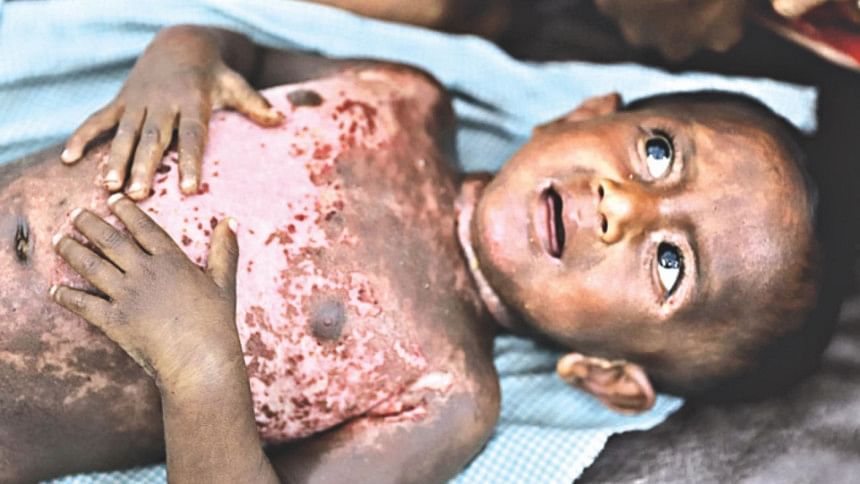
The day after the Eid moon was sighted, while the Muslim world collectively celebrated, Khurshida, 32, sat in her home in Buthidaung in Maungdaw, watching her two sons play, a seven-year-old and one-year-old, Hayat. They weren't allowed to be too excited though. They were only allowed to survive, a dark spot in the shining visage of Myanmar's newfound democracy.
Today Khurshida sits in Sadar Hospital, Cox's Bazar in Bangladesh, a whole country away, with Hayat lying on the hospital bed, recounting a horror. Hayat's entire body is covered in burns; his eyes are fixed on the ceiling and he whimpers from time to time. He is going through so much pain that even mustering a cry hurts. He does not cry. He only whimpers, softly, a sound of muted anguish.
"At 2:00pm, the military surrounded our house and set it on fire. My older son panicked. He dropped Hayat and ran out of the house," Khurshida remembers. "I ran back inside to get him but a piece of the flaming ceiling had fallen on him," she says. I ask her the name of her elder son, but Khurshida is suddenly distracted. She delicately wraps her pink aanchol around her face, her eyes fixed on Hayat. With her other hand on his forehead she checks his fever. What else can she say? Now is when you want to tell her that everything will be alright and to have faith. But you can't. No one knows what will happen next.
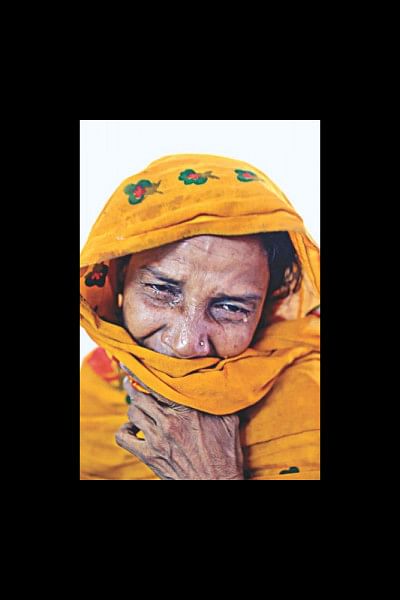
Faith has become a luxurious comfort. Her son, Hayat, is only one-year-old and has already seen and suffered more than any one-year-old should.
On the next bed is six-year-old Faisal. His hand is heavily plastered. He sits with his mother. His eyes are darting everywhere. Is it out of curiosity or fear? "We were running away from the army. They would not stop shooting at us," Faisal's mother says. In the rush, Faisal fell, tumbling down the steep hills, breaking his arm.
A broken arm was better than the fate the Myanmar military had in store for him. Faisal's eyes still retain the gleam of youth unlike Hayat's, who has been robbed of the innocence even before he had the chance to nurture it.
In another room, the first thing that greets you is blood-stained sheets. The patient occupying the bed has been moved for further examinations. A selfish relief washes over, having avoided another gut-wrenching story. But before one can breathe easier, there's more to come.
On the very next bed behind her is Nur Haba. She lifts her bandaged arm to show where the bullet went through. "It was around Fajr. We woke up to the screams of our neighbours who were being slaughtered next door," she says. "As soon as we realised what was happening, we got out and ran towards the hills. The military men were slaughtering everyone in sight and burning all our homes," she adds.
She pauses for a few seconds, collecting herself. As they ran, the army began shooting. "They did not stop shooting. They came suddenly, armed with rocket-propelled grenades. We are farmers. What could we do?" she asks. This is when you ask what you could now do for her apart from offering a few words of consolation. How do you console someone whose suffering refuses to end?
On the bed across sits Sura Khatun with her grand-daughter, Zamila Khatun, a girl who is around 15. She wishes to show the gaping bullet hole in her grand-daughter's back, left after a bullet ripped through her chest. In some twist of fate, the girl survived, the bullet missing any vital organs and going right through her, leaving behind only a mark and an unforgettable memory.
But at least her grand-daughter was still alive. That must be a small blessing for her, a story of resiliency in the making. But Myanmar's crackdown was not conceived with an option for positive stories; it was about unleashing brutality, one that would haunt the memories of its victims and their future generations for centuries to come.
"My son was shot. My four-year-old grand-son…" she pauses, and then breathes in, her eyes brimming with tears. She wants to continue but doesn't know how to put in words what happened next. "My four-year-old grandson, I saw the bullet go through his head," she says, pointing at her own temple. In that instant her face contorts into a mask of melancholy and she breaks down. She can say no more. But her eyes tell you that Rakhine is no longer her home and can never be again.
Once her sobs subside, she goes back to telling her tale.
"At 1:00 pm, while the men were finishing their prayers, the military surrounded the mosque and started shooting indiscriminately. At least 200 people died," she says. "They wouldn't allow us to go to mosques or madrasas to pray. They allowed us nothing," she concludes wishing to say no more.
Today Sura has her grand-daughter to take care of with the help of a few relatives. Her husband, who was blind, has been missing since the attack.
It was time to leave. Just outside the cabin, the halls filled with the cries of a child. Rushing out, we met 13-year-old Jubair, clinging on to his mother. Shirtless, he clutched his stomach and kept groaning in pain. It was a stomach infection, a nurse informed. When Jubair's mother was handed a prescription for a 15 taka medicine, she slowly led Jubair into a ward, her head bent low, and placed him on the bed. Jubair refused to let go of his mother's arm.
He wasn't shot. He wasn't burned. He had a stomach infection, probably from eating scraps, as that was all they had. But his mother still seemed troubled. Turns out she did not have the 15 taka she needed to save her son from this unbearable pain.
Before we left, Sura called us back and asked us to take a picture of Zamila's bullet wound. She wanted the world to see what had happened to them. Like her, many refugees in the camps had also been willing to tell their stories and show their scars. They firmly believed that if the world saw them and heard them, they would help.
Does anyone have the heart to tell them that the world turned their backs on them a long time ago? Could anyone tell them that the international leaders, who they imagine to be their saviours, refuse to acknowledge their suffering?
In Sadar District Hospital Cox's Bazar, it dawns upon you that there is no point wrapping what happened in fancy packages of nice sounding terms. It is time to call it what it is. This is genocide. Let there be no doubt about it. If Hayat lives, he will not shy away from telling you the same.

 For all latest news, follow The Daily Star's Google News channel.
For all latest news, follow The Daily Star's Google News channel. 


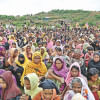
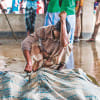
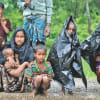
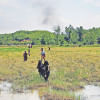

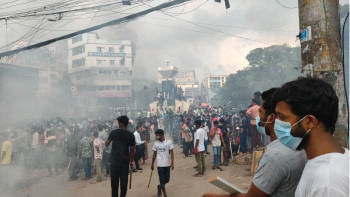
Comments